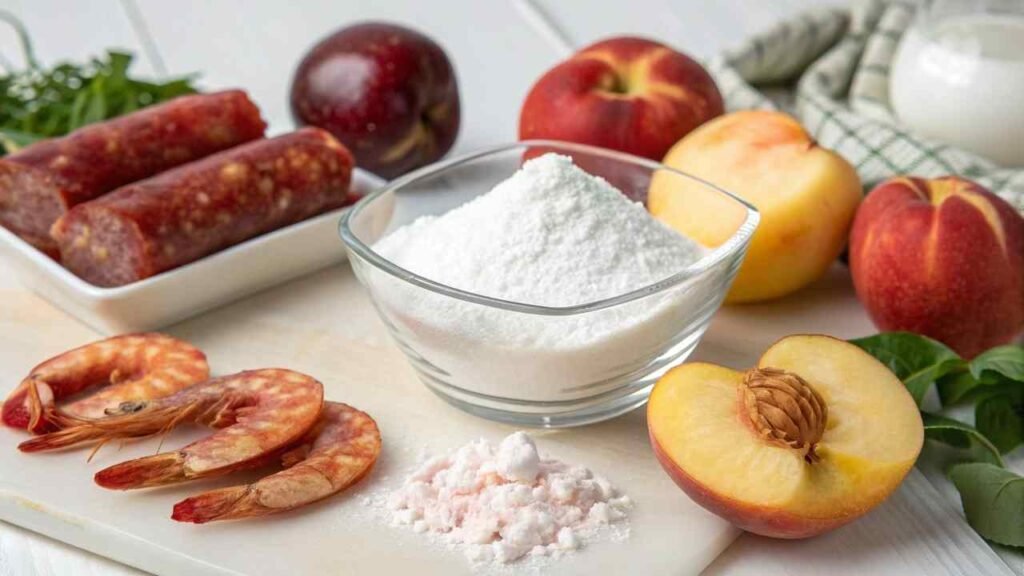Using sodium erythorbate in foods? Wonder about its effect on taste or nutrition? Let's quickly cover the key impacts of this additive.
Sodium erythorbate typically doesn't change food flavor. It helps keep color and some nutrients by stopping oxidation. It adds a little sodium but isn't a Vitamin C source.
At FINETECH, clients ask how additives affect their products. Taste and nutrition are big concerns. Let's briefly explore sodium erythorbate's impact.
Does Sodium Erythorbate Alter the Natural Flavor of Foods?
Worried sodium erythorbate might change your food's taste? Could it add unwanted flavors? Let's see its impact.
At normal low usage levels, sodium erythorbate is virtually tasteless. It mainly works to prevent off-flavors from oxidation, thereby preserving the food's natural taste.
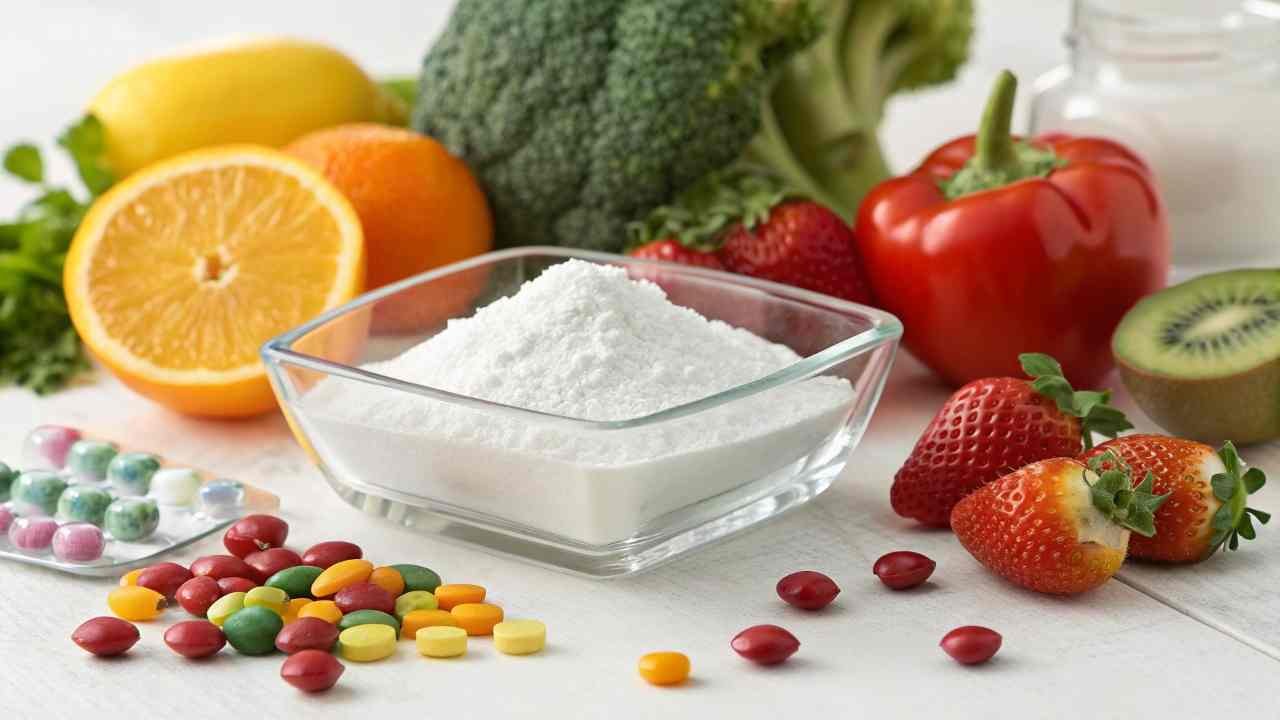
Sodium erythorbate itself has a very mild taste, if any. It's used in tiny amounts (e.g., 0.02-0.05%), so its own taste isn't noticeable.
Its main job related to flavor is positive: it stops oxidation1 that can cause:
- Rancid tastes in fats.
- "Warmed-over" flavors in reheated meats.
- Loss of fresh notes.
By preventing these, it helps food keep its original, intended flavor longer. So, it protects natural taste2 rather than changing it.
Taste Impact Summary:
| Aspect | Effect of Sodium Erythorbate |
|---|---|
| Direct Taste | Negligible at normal use levels |
| Flavor Preservation | Helps keep original food flavors |
| Off-Flavor Control | Prevents rancidity, stale tastes |
It's a flavor-friendly protector.
Can Sodium Erythorbate Reduce Nutrient Loss in Processed Foods?
Can sodium erythorbate help save nutrients in food, not just looks? Let's see if it protects the good stuff.
Yes, as an antioxidant, sodium erythorbate can help protect some oxygen-sensitive nutrients, like Vitamin C and certain B vitamins, from breaking down during processing and storage.

Oxidation can destroy nutrients like Vitamin C, some B vitamins, and essential fatty acids3. Sodium erythorbate acts as an oxygen scavenger. It reacts with oxygen first, "sacrificing" itself to protect these sensitive nutrients.
This can help:
- Slow down Vitamin C loss in juices or canned fruits.
- Maintain the quality of fats by preventing rancidity.
- Preserve color, which is sometimes linked to nutritional compounds.
It won't stop all nutrient loss (e.g., from heat or light), but it helps specifically against oxidative degradation.
Nutrient Protection Snapshot:
| Nutrient | How Erythorbate Helps |
|---|---|
| Vitamin C | Slows oxidative loss |
| Some B Vitamins | Reduces oxygen exposure |
| Pigments/Fats | Prevents oxidative damage |
It contributes positively to retaining some nutritional quality.
How Does Sodium Erythorbate Affect Sodium Content in Products?
Concerned about hidden sodium? Does sodium erythorbate add much? Let's check its sodium contribution.
Sodium erythorbate contains sodium (about 11.6% by weight), but it's used in such small amounts that its contribution to total sodium in foods is usually very minor compared to salt.
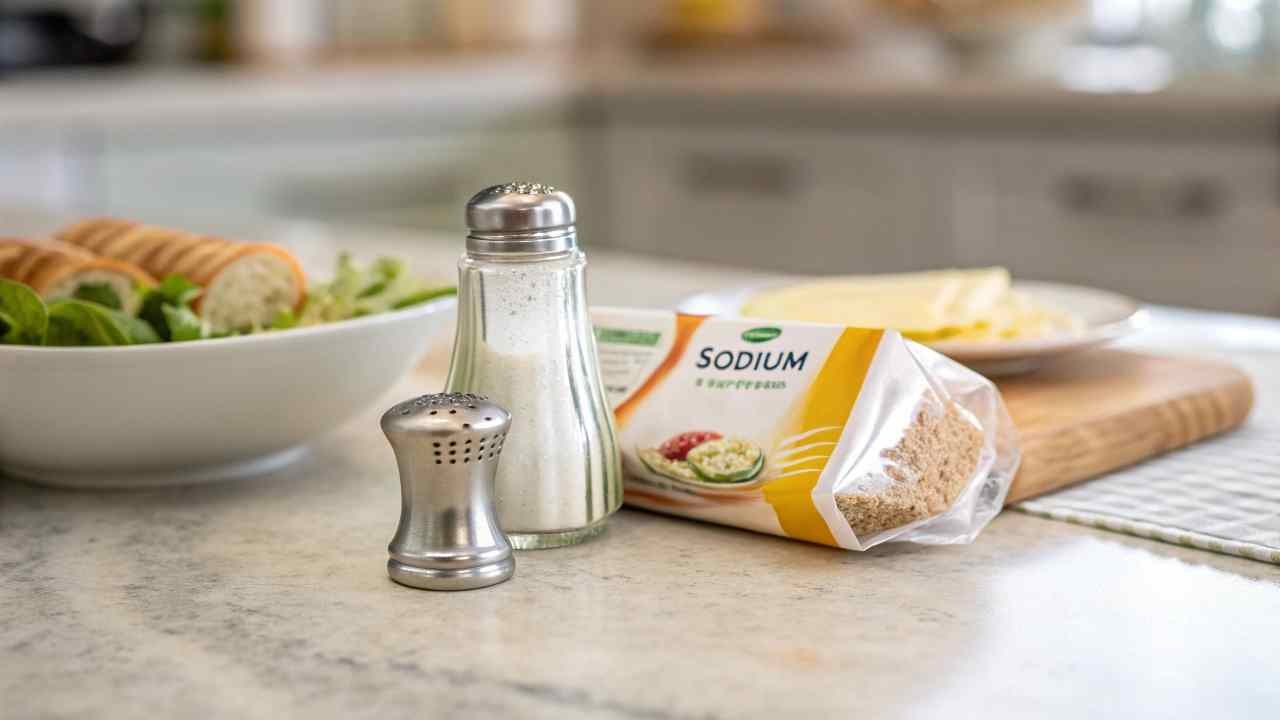
Sodium erythorbate is typically used at levels around 0.02% to 0.055%. Let's do a quick calculation:
- If a food has 0.05% sodium erythorbate, the sodium added from it is about 0.05% * 11.6% = 0.0058% of the food's weight. This is 5.8 mg of sodium per 100g.
- Compare this to 2% added salt (sodium chloride, which is 39.3% sodium). This adds 2% * 39.3% = 0.786% sodium, or 786 mg per 100g.
Clearly, the sodium from erythorbate (5.8 mg) is tiny compared to salt (786 mg). The main source of sodium in processed foods is usually added salt (NaCl). Reducing sodium erythorbate would have little impact on total sodium4 but could hurt its antioxidant job.
Sodium Contribution:
| Source | Typical Sodium / 100g Food | Impact |
|---|---|---|
| Salt (NaCl) | ~700-800 mg (if 2% salt) | Major |
| Sodium Erythorbate | ~5-6 mg (if 0.05%) | Minor |
Its sodium contribution is generally not a major concern.
Are There Taste Differences Between Foods with and Without Sodium Erythorbate?
Can you actually taste a difference if sodium erythorbate is used? Does it make food taste better or worse?
You likely won't taste sodium erythorbate itself. The difference is that foods without it may develop unpleasant off-flavors (like rancidity) much faster over time.
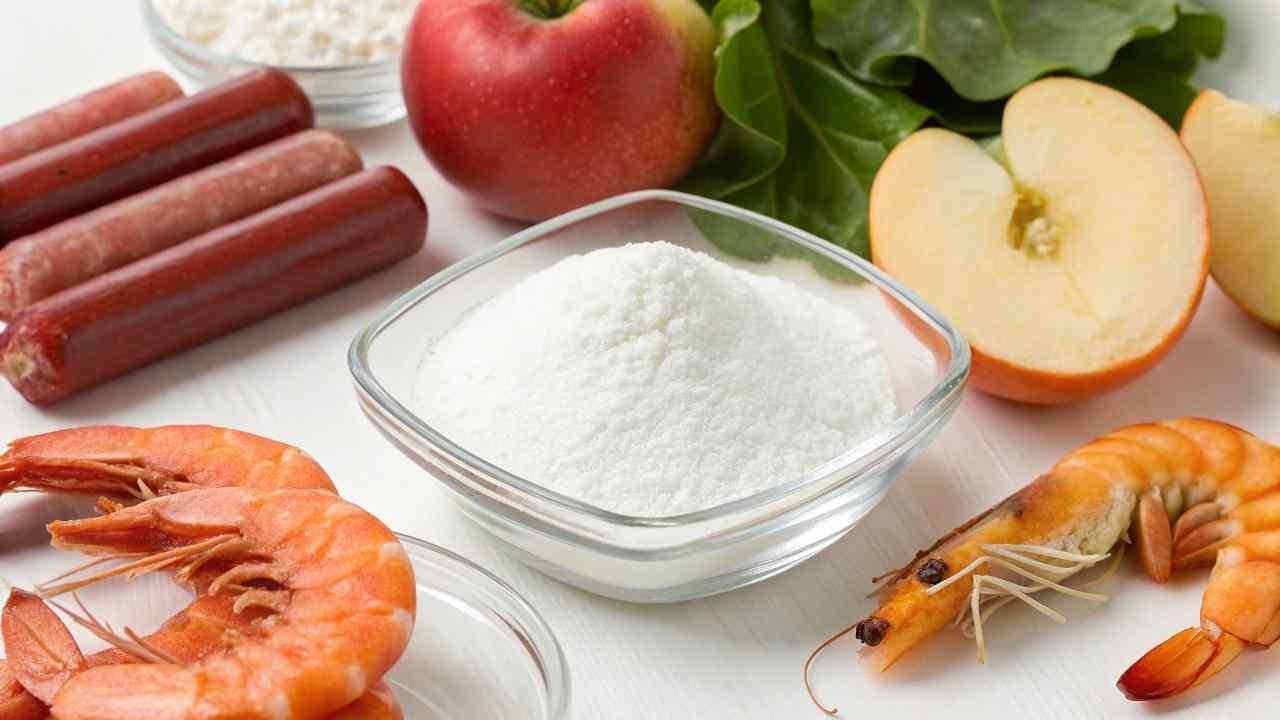
Sodium erythorbate is almost tasteless at typical low usage levels.
The real taste difference shows up when you compare products over time:
- With Erythorbate: The food stays fresher tasting for longer. Cured meats keep their savory taste, juices stay bright.
- Without Erythorbate: Prone to developing rancid, stale, or "warmed-over" flavors due to oxidation. These are very noticeable and undesirable.
So, the "difference" is the absence of bad tastes in the product protected by sodium erythorbate. It helps maintain the good, intended flavor of the food.
Taste Over Time:
| Product Condition | Expected Taste (No Erythorbate) | Expected Taste (With Erythorbate) |
|---|---|---|
| Fresh | Good | Good |
| Stored / Aged | Risk of Off-Flavors | Stays Fresher Longer |
It preserves good taste by preventing bad tastes.
Does Sodium Erythorbate Interfere with Vitamin Absorption?
Could sodium erythorbate stop your body from absorbing vitamins? Is this a risk? Let's look at the facts.
No significant scientific evidence shows sodium erythorbate at food additive levels interferes with vitamin absorption. Its chemical structure differs from active Vitamin C, and it's not known to block vitamin uptake.
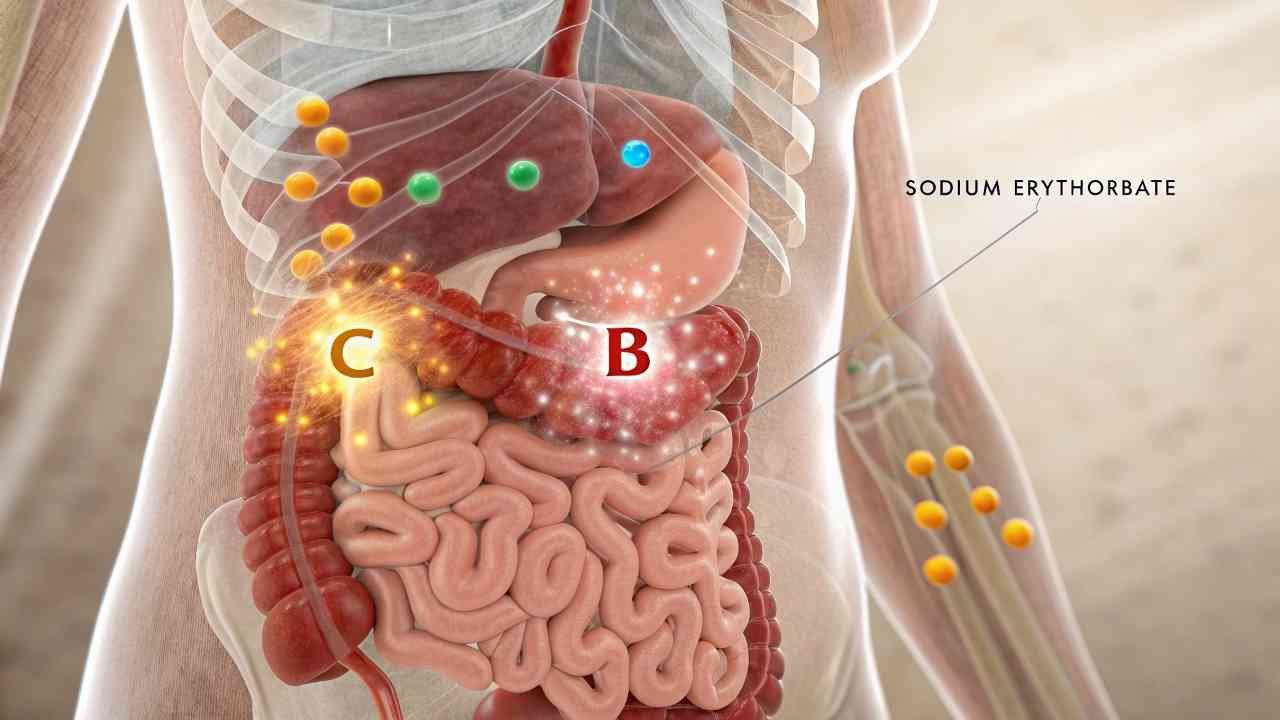
Sodium erythorbate is a stereoisomer of sodium ascorbate, meaning it has a different 3D shape. It has very little Vitamin C activity in humans.
There's no good evidence that it:
- Binds to vitamins in a way that prevents absorption.
- Competes for the same absorption pathways as other vitamins.
- Damages the gut to impair general absorption.
Regulatory agencies consider it safe, and this assessment includes potential anti-nutritional effects5. Its main role is as an antioxidant in the food before you eat it. It doesn't act as an "anti-nutrient" for vitamin absorption in the body.
Vitamin Absorption Impact:
| Factor | Sodium Erythorbate Relevance |
|---|---|
| Interfering with Vitamin Uptake | Unlikely |
| Competing for Absorption | Unlikely |
| Damaging Gut for Absorption | No Evidence |
It's safe in this regard; its job is food protection, not absorption blocking.
Conclusion
Sodium erythorbate helps keep food tasting fresh and preserves some nutrients by stopping oxidation. It adds very little sodium and doesn't typically affect vitamin absorption in the body.
-
Learn about the impact of oxidation on food to appreciate the importance of preservatives like Sodium erythorbate. ↩
-
Exploring how natural taste preservation impacts food quality can deepen your knowledge of food science. ↩
-
Essential fatty acids are vital for health; discover how to safeguard them from oxidation for better nutrition. ↩
-
Learn how total sodium is calculated to better manage your dietary intake and understand food labels. ↩
-
Understanding anti-nutritional effects can help you make informed dietary choices and improve your nutrition. ↩

